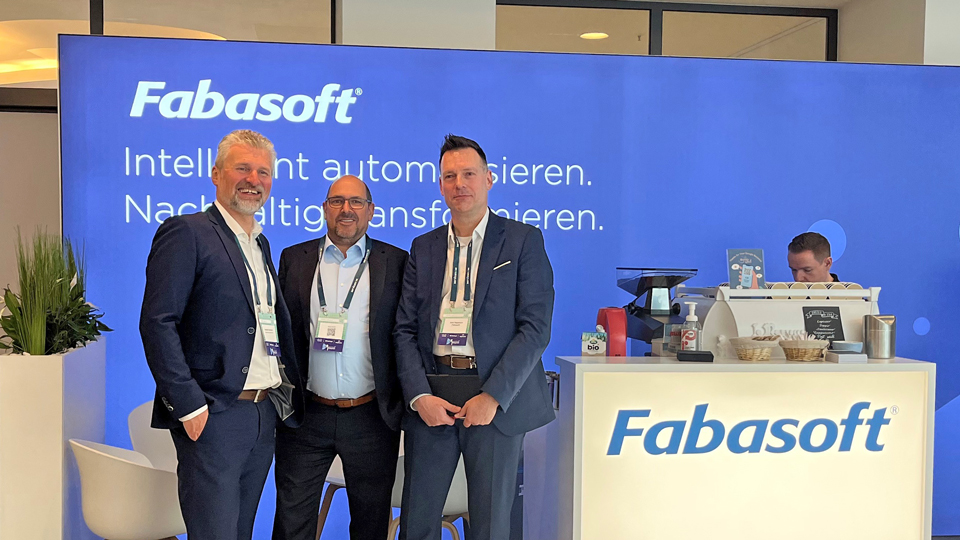The deployment of AI in various business areas and the networking of different technology platforms for the cross-organizational exchange of data will be key success factors in 2025. Open standards will play a key role in enabling the seamless integration of different systems and machines along the value chain. Automation of processes – for example for continuous compliance – and the use of green SaaS will continue to be drivers for sustainable success in my view.
Cloud technology as a trailblazer for innovation: integrated RAG services and multi-cloud systems
Integrated retrieval augmented generation (RAG) systems and the increasing use of multi-cloud architectures will play essential roles in the digital transformation of companies in 2025.
According to the research and consulting firm Forrester, cloud providers will increasingly focus on integrated RAG services to further optimize their existing cloud services. This technology enables the provision of a more precise information base for generative AI applications. Integrated RAG systems increase both the accuracy and efficiency of AI-based applications through the intelligent combination of data from different sources and their processing in real time.
Multi-cloud systems are already widely deployed in practice, but they can pose challenges for companies if they are operated without the appropriate interconnecting software. Given the dynamic nature of today's IT landscapes, companies need to ensure that their multi-cloud environments can communicate with each other via adaptable and flexible interfaces. OpenAPI for common, open industry standards is an important topic in this context. Only in this way can the enormous amount of data from different sources be efficiently processed and converted into valuable insights, which are necessary for the development and training of AI applications. A multi-cloud strategy enables companies to use the best services from different providers while minimizing risks such as outages or compliance issues.¹
Continuous Compliance: AI and automated real-time audits
The introduction of continuous and automated compliance management is a highly promising approach to continuous compliance and will be more widely used in practice in 2025. Companies will increasingly rely on real-time verification of certificates and compliance status rather than waiting for periodic audits, which may reflect outdated information. Companies can use APIs (programming interfaces) and cloud services to continuously control and automate their audit processes. The API is linked to stored assessment rules that enable real-time verification of compliance data. An integrated rights and role system ensures that only authorized persons have access to sensitive verification data and catalogs.
The integration of AI into this proactive compliance environment aids in analyzing large amounts of data and detecting anomalies that may indicate compliance violations. Through pattern recognition and machine learning, AI can identify potential risks early on and generate automated reports that help auditors make informed decisions faster.
One innovative example of the use of continuous compliance methods is the EU research project EMERALD. This project aims to enable automated compliance checks in real time and to help companies meet regulatory requirements more efficiently, thereby giving them a significant competitive advantage.
AI in quality management: "Predictive Quality" and "Predictive Maintenance"
The importance of integrating AI into quality management will continue to grow in the future. Predictive quality represents one of the most groundbreaking developments in modern quality management. AI algorithms identify quality issues before they arise and predict their onset with precision. To accomplish this, AI continuously analyzes data from production and other relevant sources to detect patterns and anomalies that indicate potential quality defects. These early warning systems, in conjunction with methods such as FMEA (Failure Mode and Effects Analysis), enable companies to react quickly and take proactive measures to avoid production defects or complaints.
The field of predictive maintenance sees AI models continuously monitor the condition of machines and predict when a failure is likely to occur. This predictive maintenance allows companies to take targeted maintenance action before a failure occurs. This not only minimizes unplanned production downtime but also extends the service life of the machines and saves costs for emergency repairs.
Digital and scalable data environments supported by cloud technology provide the foundation for these innovations. AI algorithms can only function effectively and deliver accurate forecasts if data is fully digitized and silos are eliminated. Companies must ensure that all relevant data – both internal and from the supply chain – is integrated into a single system in order to provide AI with a reliable foundation for its analyses.
The combination of cloud technology and AI paves the way for holistic and flexible CAQ (computer-aided quality) systems. These systems enable rapid responses to changes along the supply chain, thus boosting the quality of business processes and, ultimately, the products themselves. Companies that already rely on a cloud native DMS/QMS benefit from networked data management that covers the entire lifecycle of production processes and enables seamless collaboration between internal and external partners. Building on this, AI holds the key to a new, more efficient era of quality management.
"Edge AI" & "Agentic AI": artificial intelligence near the end device
One of the most promising trends is AI agents: self-learning AI units, i.e. small AI-supported software programs that can independently perform highly specialized tasks. Such intelligent and self-learning systems for analyzing large amounts of data or optimizing processes are becoming an increasingly important part of business processes. Up to now, a cloud was needed to provide the computing power required for this. Edge AI takes a decentralized approach and transfers the know-how to the devices themselves: data is evaluated right where it is created. This reduces the need for concentrated computing power, supports data sovereignty and increases reliability.
The storage and processing of large amounts of information is very resource-intensive. Edge AI significantly reduces this energy consumption by sending only important metadata to a server or cloud for storage. For example through an AI-supported pre-processing of machine data. Another advantage of this technology is faster data processing and greatly reduced latency.
Science Based Targets: achieving climate protection with a science based approach
Climate change requires an increasing amount of decisive action from companies. The pressure on companies to act in a climate-friendly and sustainable manner will continue to grow in 2025. Companies that adopt science-based climate targets are making an important contribution to decarbonization and climate change mitigation. The integration of environmental, social and governance (ESG) criteria into corporate strategy has become a key competitive factor.
One of the most promising developments in this area is Green SaaS concepts. These software-as-a-service solutions allow companies to reduce their environmental footprint by using renewable energy and minimizing the need for data storage. Not only can companies pursue their own sustainability goals through green SaaS, but they can also cater to their customers, who are increasingly prioritizing future-oriented business practices. Those companies that seriously implement sustainability measures in particular attract environmentally conscious customers and improve their brand image.
Science Based Targets (SBT) offer a particularly effective approach to achieving sustainable climate targets. These targets of the 2015 Paris Agreement are based on the latest scientific findings and provide companies with a clear roadmap for reducing their greenhouse gas emissions and thus limiting global warming to less than 2 degrees Celsius. Environmentally conscious companies such as the Fabasoft Group take responsibility and actively promote climate protection by participating in the United Nations Global Compact (UNGC) and implementing ESG criteria.The use of SBTs not only helps companies achieve their own climate targets, but also ensures that their activities are aligned with global climate targets.




